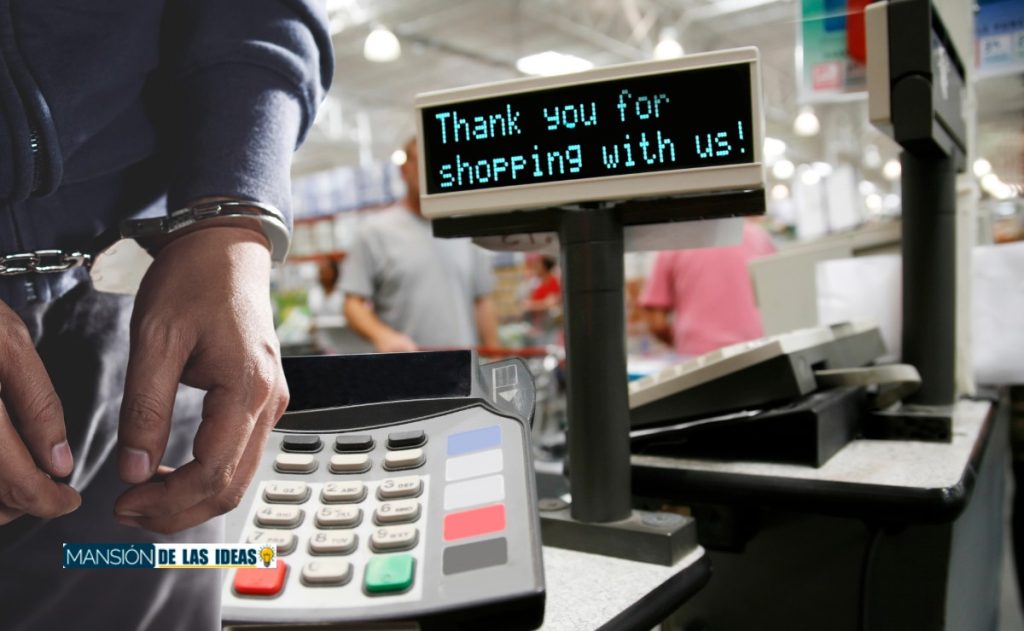In Target stores, theft at the self-checkout has been an ongoing challenge for security. Thieves have always come up with clever ways to exploit the system and walk away with unpaid items. From hiding products in reusable bags to selecting cheaper items, they’ve used classic tricks to deceive the self-checkout system. However, there’s a new twist in this tale.
Recently, a former Target employee told the world that the company has come up with an innovative strategy to combat this issue. The company tracks some suspicious pattern in the purchase records from the self-checkout video monitoring. After closely analyzing the transactions, the company came up with a new way to take the thieves to jail. Yeap, they won’t hesitate to take you to the police station.
Target’s shoplifting prevention practices shown on TikTok, and costumers are divided
In a recent viral video, social media sensation Mayling (@mayling.__) had viewers initially entertained with a playful dance beneath a witty caption that read: “If you like stealing from Target self-checkout.” However, the tone of the video took a sudden shift as Mayling cheekily wrote, “GOTCHA,” accompanied by the blaring sound of police sirens. This unexpected twist sparked curiosity about Target’s reputation for enforcing strict shoplifting prevention policies.
The guys at Target won’t hesitate to call the police if you steal.Drawing attention to this topic, Hannah (@miss_getalife), a self-proclaimed ex-Target employee, shared valuable insights in a TikTok video, revealing the store’s methods for tracking individuals who frequently steal items from the self-checkout lanes. According to Hannah, Target focuses on pursuing claims against shoplifters who specifically target high-value items.
As per Hannah’s insider knowledge, if shoplifting becomes a recurring pattern, Target allegedly takes action. “If you take a couple of hundred dollars worth of stuff, they’re gonna be like ‘Bye gorgeous. You have a great day,’” Hannah claimed. However, she further asserted that the company waits until the shoplifter accrues thousands of dollars in debt before potentially pursuing legal repercussions, which could elevate the offense to a felony-level charge.
Several little check-out shoplifts turn into a crime, and there it becomes serious – Is it legal?
These claims faced opposition in the comment section, where one person disputed Hannah’s assertions, stating that such actions could be considered entrapment, which is illegal. The debate surrounding the legality and ethics of Target’s shoplifting prevention practices adds further complexity to the issue.
In an effort to shed more light on the matter, attorney Carrie Jernigan (@carriejernigan1) issued a warning to shoppers about the risks associated with stealing at self-checkout in her own TikTok video. Jernigan revealed that stores, including Target, delve into past customer records to review lost inventory, even months after the items have left the premises. Categorizing those caught in the act, Jernigan outlined three distinct groups.
“The first group of people getting charged with shoplifting using the self-checkout are people going into the stores with the intent to steal,” explained Jernigan. Highlighting the severity of the offense, she continued, “The second group, I will call the theft-by-mistake. These are the people that I genuinely think just forgot to scan an item.” Jernigan emphasized that these incidents often involve items located at the bottom of the cart or those inadvertently hidden under a purse or bag, leading to apprehension by asset protection personnel as customers exit the store.
Interestingly, the final group targeted by authorities includes individuals who are pursued after they have left the store, raising concerns about potential legal ramifications that extend beyond the immediate shopping experience.
